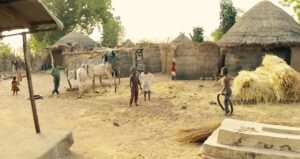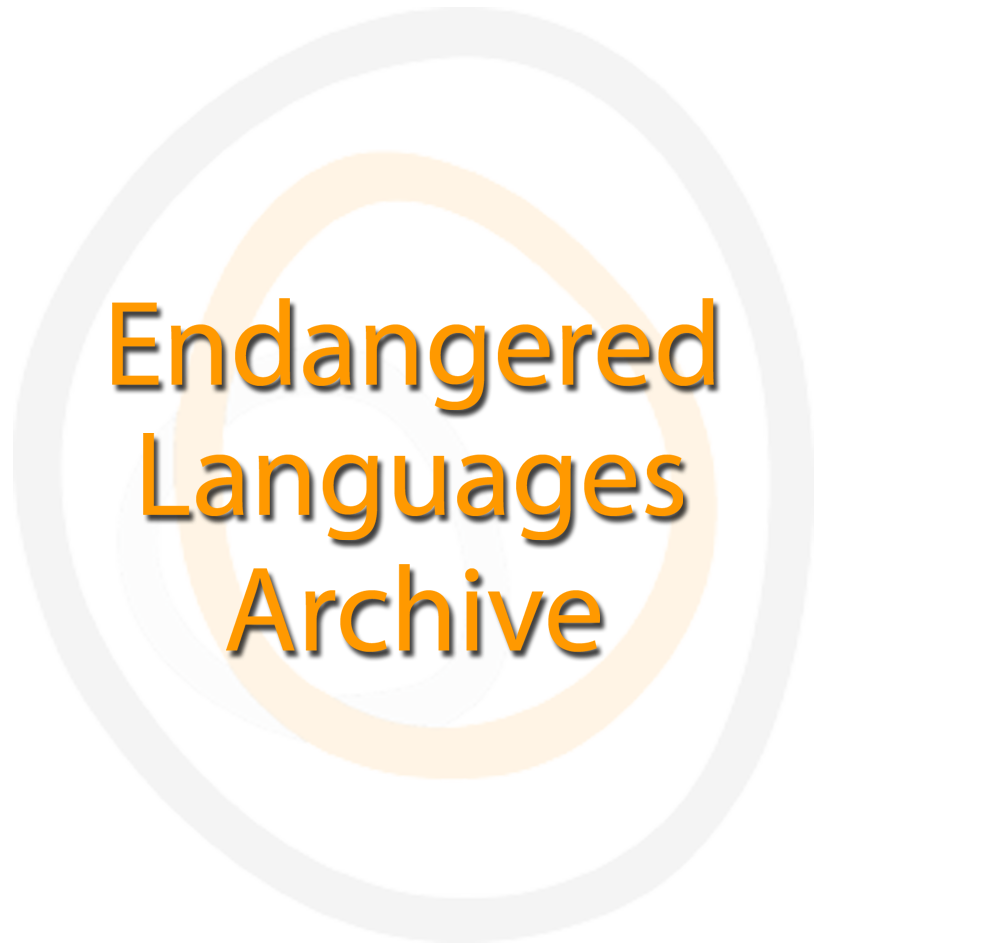A documentation project of Baa, a language of Nigeria

Landing page image for the collection “A documentation project of Baa, a language of Nigeria”. Click on image to access collection.
| Language | Baa |
| Depositor | Mirjam Möller Nwadigo |
| Affiliation | Langage, langues et cultures d’Afrique noire (LLACAN UMR 8135 du CNRS) |
| Location | Nigeria |
| Collection ID | 0431 |
| Grant ID | SG0422 |
| Funding Body | ELDP |
| Collection Status | Collection online |
| Landing Page Handle | http://hdl.handle.net/2196/e050a2cd-f61d-435e-824e-93d24877bbaa |
Blog post
Community Member Bio: Elisha Yunana
Showreel
Summary of the collection
Baa (ISO 639-3 KWB) is a minority language of northeastern Nigeria. There are no recent statistics on the number of speakers, but estimates range between 5000 to 10000. This documentation corpus of annotated audio-visual texts is the first collection of data ever published on Baa. The material was recorded by Mirjam Möller Nwadigo and the community members themselves. It was collected from a wide range of speakers and includes different genres, such as folktales, expository texts, songs, and cultural events.
Group represented
This collection consists of material recorded in Baa, collected from their community in the two main villages: Gyakan, and Kwah, in Lamurde Local Government, Adamawa State, Nigeria. Baa speakers that live in Lagos and other major cities around Nigeria are also represented in this collection. The main content language is Baa, other languages used occasionally by some participants are Hausa and Nigerian Pidgin.
Collection contents
The majority of recordings are narratives and expository texts. The material relates to Baa traditional activities, such as farming, fishing, and hunting. Some sessions include how they make and use pottery. Other texts concern histories of the Baa people’s migration from northern Nigeria to where they are today. Recordings from cultural events, burials and dance festivals, are also found in the collection.
Another part of the material features conversations between Baa speakers, relating to their language use, and their views on the future of the language.
This corpus was partly built for the grammatical analysis of Baa as part of Mirjam’s Ph.D. project. All elicitation sessions during the project have also been included in the collection.
Here is a guide to the Baa corpus and the material uploaded to the archive. It is to serve potential users of the collection to understand what is presently available, as well as help them use it for research purposes.
Collection history
The data in this collection was collected during the Ph.D. project of Mirjam Möller Nwadigo, the principal investigator. During Mirjam’s second fieldtrip to Lagos, January – March 2017, she was able to train community members in doing video and audio recordings. One community member, Elisha Yunana, then travelled to the two main villages; Gyakan, and Kwah, and some neighbouring hamlets, in Adamawa state, where he worked with his community to collect data. Most recordings are from Elisha’s trips and visits to Gyakan and Kwah, but he also did recordings with speakers in Lagos. Kaduwe Ornan, a linguistics student from a neighbouring community, has also helped in the data collection.
Acknowledgement and citation
Users of any part of the collection should acknowledge Mirjam Möller Nwadigo as the principal researcher and data collector. Users should also acknowledge the Endangered Languages Documentation Programme as the funder of the project. Individual speakers whose words and/or images are used should be acknowledged by name. Any other contributor who has collected, transcribed or translated the data or was involved in any other way should be acknowledged by name. All information on contributors is available in the metadata.
To refer to any data from the collection, please cite as follows:
Möller Nwadigo, Mirjam. 2016. A documentation project of Baa, a language of Nigeria. Endangered Languages Archive. Handle: http://hdl.handle.net/2196/00-0000-0000-000F-CB4E-5. Accessed on [insert date here].


